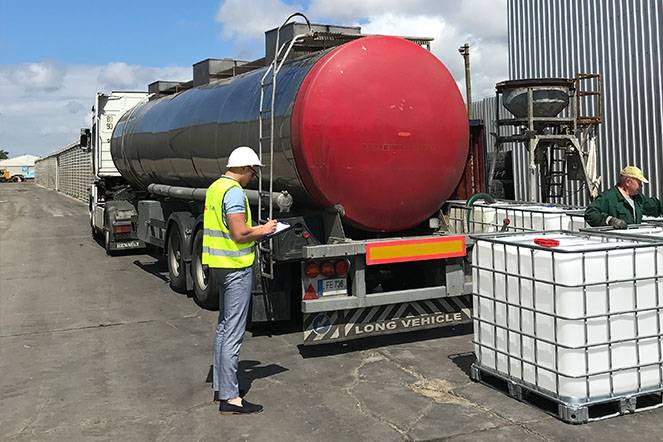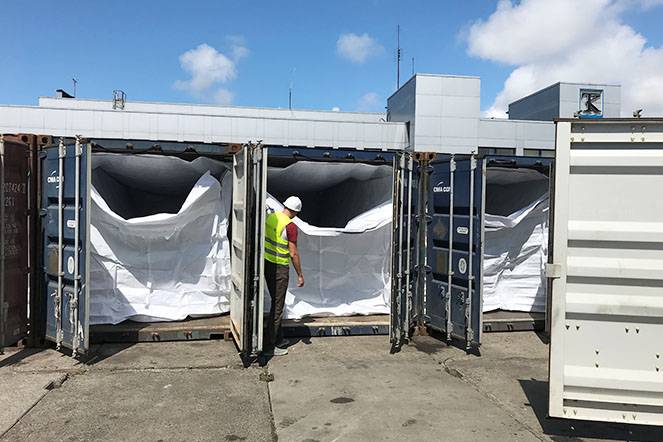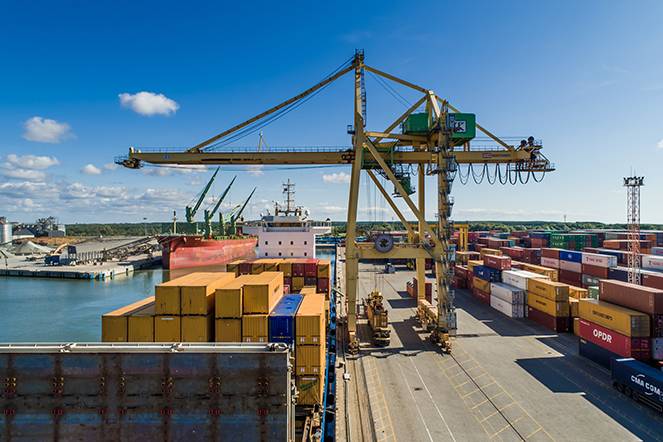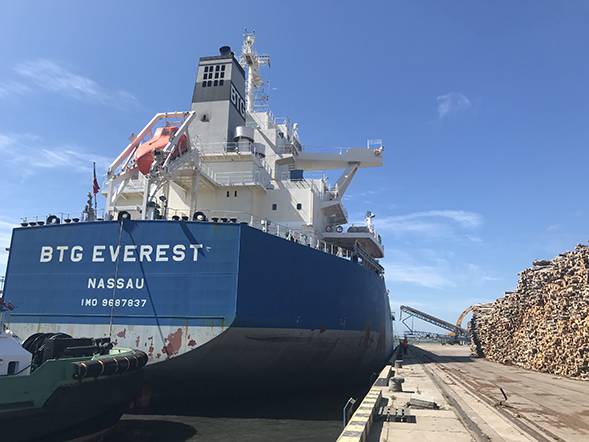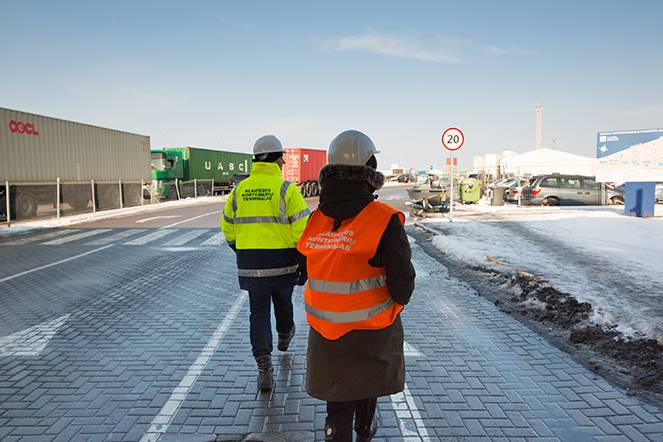Loading Bulk Cargo into Ships: Labour Productivity and Modern Technologies Will Reduce the Costs
2019 October, 25
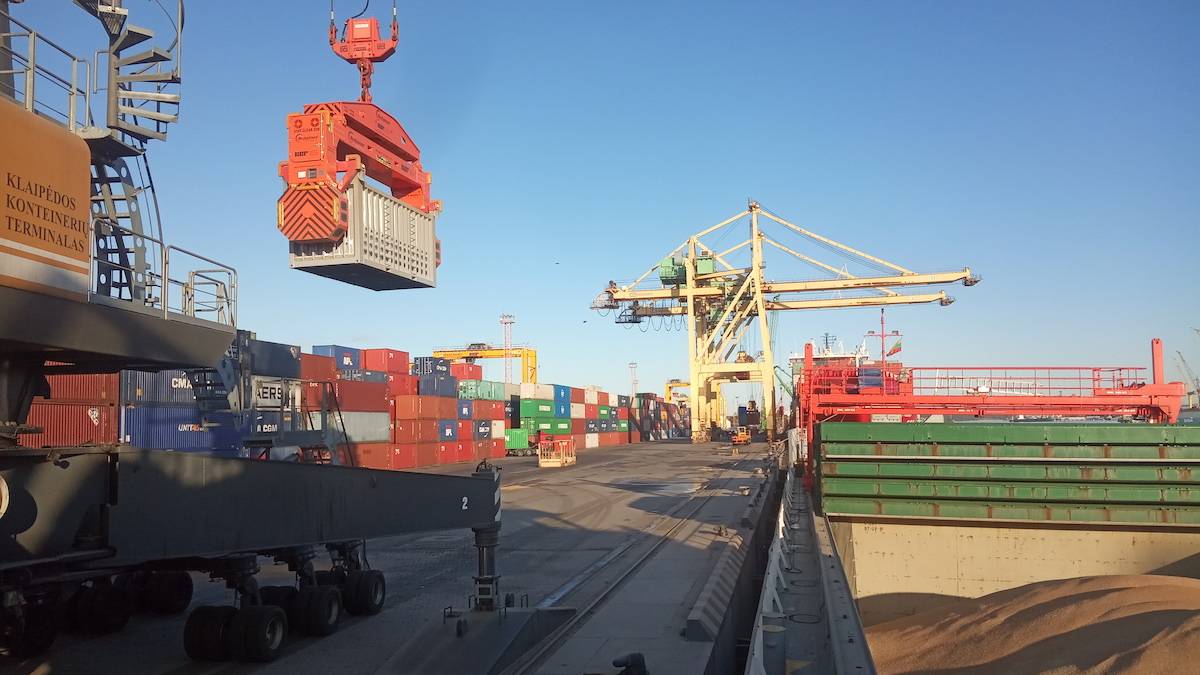
Cargo loading efficiency, guaranteed resources of specialized equipment and competent specialists, terminals’ working hours, properly prepared storage units, strict supervision of loading and storage processes, freight forwarder’s professionalism, flexibility, communication and knowledge of nonstandard situations are the key aspects that should be taken into consideration by bulk cargo owners looking for handling and storage services.
Our company JSC “Tarptautines logistikos centras” offers cargo handling and storage services that meet high requirements. All the procedures are carried out based on the standards of “GMP+” certificate, which means that every process has a clear course of action and is strictly supervised, significant attention is dedicated to the quality and the safety of the procedures involved.
Efficiency will help to save money
One of the most relevant aspects regarding the handling processes is work productivity. Every additional day that a ship spends at a dock comes with a cost, thus more efficient handling means cheaper cargo transportation for our clients.
Recently, our partners JSC “Klaipeda Container Terminal” upgraded their cargo handling equipment: in July, the terminal started using a new crane, “Gottwald G HMK 5506”, with 125 tonnes of lifting capacity and 51-meter-long jib. It can handle the loading of both small barges as well as “Post-Panamax” class ships. In October, a container rotator Rotainer® Eurospec 38 was used for the first time while loading cereals into FWN Ruby, a ship belonging to the Dutch. Its uniqueness lies in its ability to lift a bulk cargo container, empty it and place it back onto chassis very quickly, in approximately 2 minutes, which means it can carry out around 30 cycles per hour.
This exceptional bulk cargo loading technology was invented in 2009 by an Austrian company CRS. Essentially, the effectiveness of this equipment depends on the work of the terminal – how quickly the containers are filled and transported from the storage units to the ship. Upon ensuring continuous supply of fully loaded containers to the ship, the loading effect will certainly be tangible and can reach up to 700 tonnes per hour.

We take care of work process optimisation within the company as well. We invested in online “Resource Planning System”. According to J. Kairys, this novelty in the company has made internal communication easier, ensured a smoother exchange of information, improved the management of company data as well as the quality of services.
The specificities of bulk cargo handling
Bulk cargo has been the area of specialisation for JSC “Tarptautinės logistikos centras” for over a decade. We mostly organize the handling of cereals and leguminous plants. We also have equally substantial experience in handling fertilizers, peat, technical salt, cement, wood pellets and chip wood, various pulp and solid residue, loose or granular feed.
We are equipped to handle both loose as well as packaged cargo and load it into ships, containers, and wagons. We have several efficient bulk cargo handling systems at our disposal. We use a mobile loading system with a blower for cereals and a stationary belt conveyor system for fertilizers and other cargo.
Cargo loading into containers and wagons usually requires preparation. In order to protect the cargo, we can integrate a shell of shock-absorbing material and isolate the cargo itself by an additional lining. Additionally, to prevent undesirable contact between the cargo and the container walls specialized lining is used.
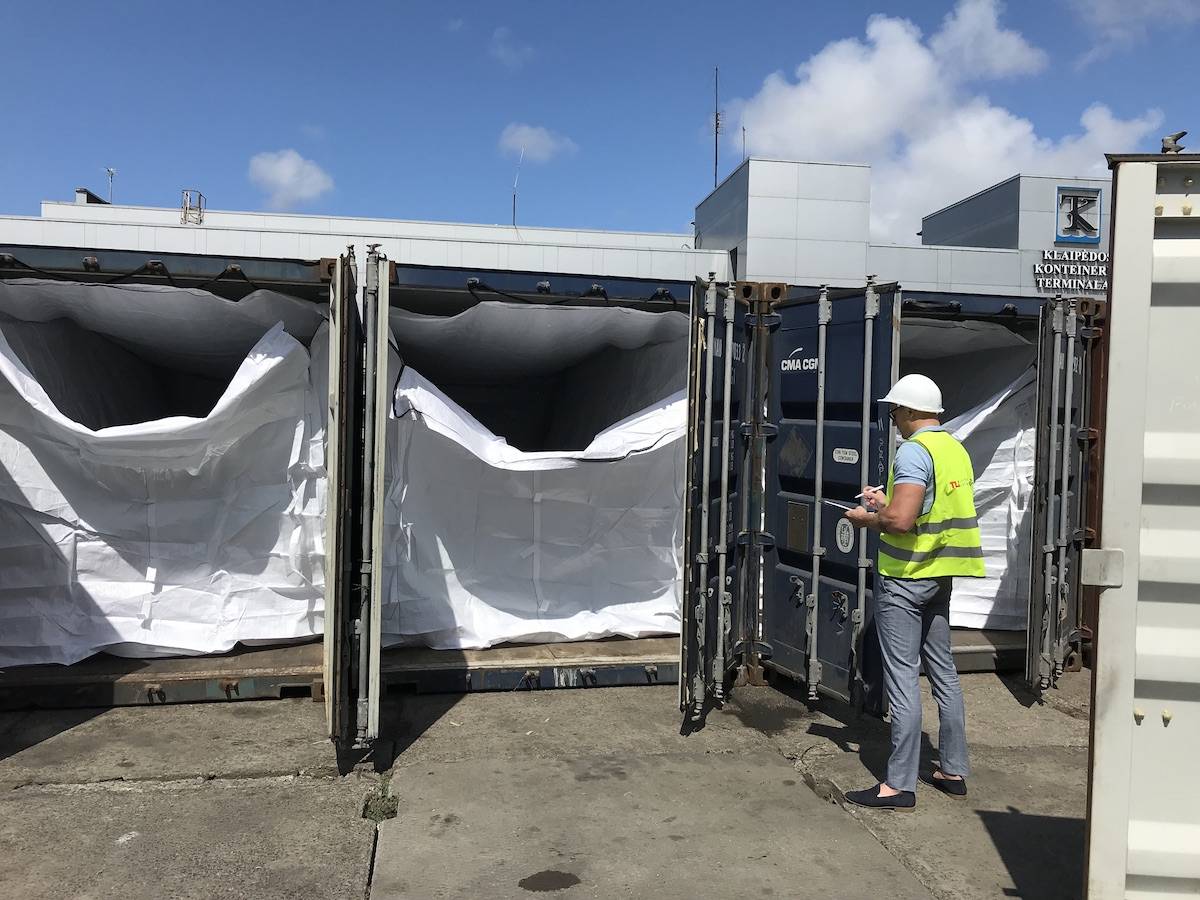
Bulk cargoes, especially fertilizers, cereals, and leguminous plants, are sensitive to humidity, thus preventing it is among the most important concerns while handling cargo of such nature. Naturally, loading does not take place if there is any kind of precipitation or fog. The CEO of the company J. Kairys expressed his disappointment that Klaipeda’s terminals still do not posses the technical means to load cargo underneath a roof for full protection while in other countries such practices aren’t considered innovative. Potential damage inflicted by humidity is also relevant while transporting cargo by railroad in open wagons. For this reason, we offer a wide range of packaging services for our clients.
We package using mobile, extremely precise and efficient equipment, and in that way ensure significantly smaller possibility of errors while weighing the cargo as well as minimal cargo disintegration. Based on our client’s needs, we package the cargo into polythene bags, exceptionally sturdy polypropylene bags or polypropylene bags with polythene shells, we offer a great variety of bulk bag choices, we use silica gel bags for humidity prevention. We can also offer printing on the packaging.
Storage depends on cargo specificities
The requirements for bulk cargo storage depend on the type and the specificities of cargo. While rubble can be stored in an open-air area and simply covered by a tarpaulin, fertilizers, cereals, and leguminous plants need a dry storage unit with protection from humidity. Otherwise, there is a risk of damaging or losing the cargo completely. J. Kairys states that extremely strict control of storage procedures is necessary for certified ecological cargo storage. This kind of cargo demands not only protection from humidity but also cleanliness of the storage facilities and the cleaning procedures need to meet certain standards. On top of that, ecological cargoes do not get fumigated, so they are more susceptible to the damage inflicted by pesticides.

“The storage of cargo for which our company provides freight forwarding services is supervised by qualified specialists – surveyors. We take samples from the cargo being stored and send them to relevant institutions, we fill out the documents necessary for State Veterinary and Food Administration and State Agriculture Administration. Another service offered by our company that is of relevance to the owners of ecological cargo is certification of storage units” – notes J. Kairys.
At this moment, JSC “Tarptautinės logistikos centras” has around 80 000 square meters of storage space at its disposal in the territory of Klaipeda Seaport. J. Kairys claims that if a need arises, the company can build the storage units of desirable size and ensure long-term (1-5 years) rent for an attractive price for those who continuously transport cargo. Our clients are also offered the possibility to store their cargo for free in Klaipeda Seaport for approx. 30 days.
